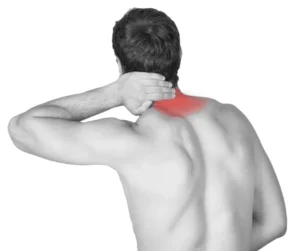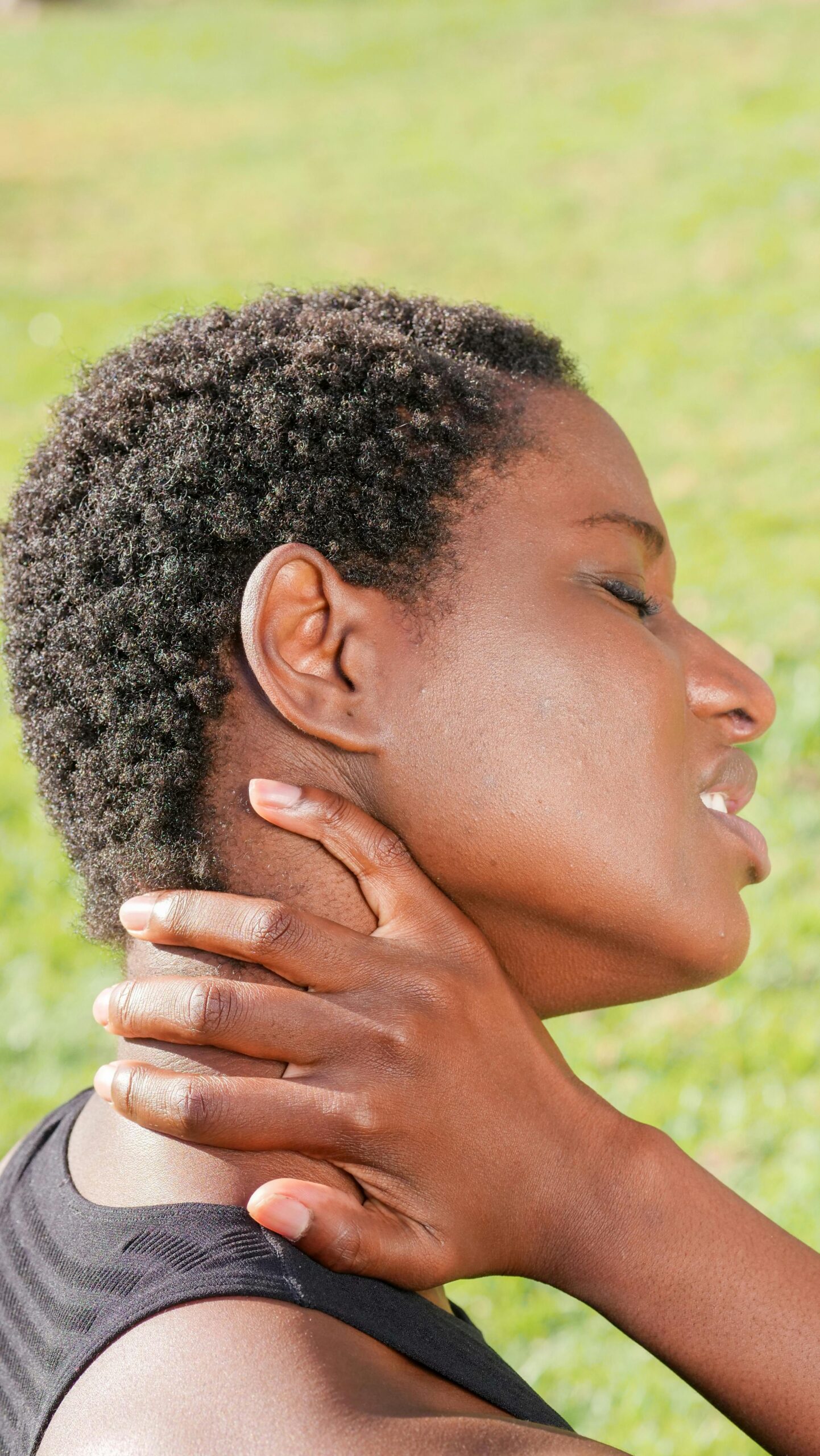Neck Pain Relief
Restore balance to your neck and your life.
Don’t Let Neck Pain Dictate Your Day
The neck is a marvel of engineering, designed to support the weight of your head while allowing for incredible mobility. But this delicate balance of strength and flexibility makes it vulnerable. When neck pain strikes, it can lead to debilitating stiffness and tension headaches. More than that, persistent neck pain can lead to fatigue, anxiety, and can hinder your work and daily tasks. It can truly put a stop to the active Bend lifestyle you love.
This is where expert care makes all the difference. At PhysioFIT, we understand the intricate mechanics of the cervical spine. Our physical therapists in Bend provide a comprehensive evaluation to understand the root cause of your neck pain, then build a personalized treatment plan to restore your pain-free movement.

PhysioFit Discovery Call!
Ready for Relief from Neck Pain? Call Today.
Common Symptoms of Neck Pain
- A persistent, nagging ache or a sharp, stabbing pain in your neck.
- Headaches, especially those that seem to start at the base of your skull.
- Stiffness or a “locked” feeling that makes it difficult to turn your head.
- Numbness, tingling, or weakness that radiates from your neck into your shoulders or arms.
- Increased pain when you stay in one position for too long, like sitting at a desk or driving.
- A grinding or popping sound when you move your neck.

The Most Common Causes of Neck Pain
The neck pain you feel can stem from a wide range of factors. It may be from a sudden injury like whiplash or develop slowly from long-term habits like poor posture. Whatever the cause, understanding these sources is the first step toward effective relief. Here are some of the most common reasons for neck discomfort:
Age-related Deterioration
Over time, natural “wear and tear” can lead to degenerative conditions in your neck. This includes osteoarthritis (the breakdown of joint cartilage) and spinal stenosis (a narrowing of the spinal canal). This can also lead to a herniated disc or a pinched nerve, causing significant pain and stiffness.
Physical Exertion
Overuse from repetitive activities or even just long hours spent sitting at a desk can lead to strained neck muscles. Poor posture, often called “tech neck,” is one of the most common contributors we see, as it places the spine in a misaligned position and puts constant strain on your neck.
Psychological Stress
Stress has a direct physical effect on the body. During stressful periods, many people unconsciously clench their jaw and tighten the muscles in their neck and upper shoulders. Over time, this constant tension can lead to persistent stiffness and painful trigger points.
Injury
Trauma from an accident or fall can damage the muscles, ligaments, and joints of the cervical spine. In fact, neck pain is the single most common injury from car accidents, accounting for nearly half of all cases. This often results in whiplash, a condition that can cause long-lasting discomfort if not treated properly.
Abnormal Growths
As the spine ages, your body may create bony growths called bone spurs. While not always painful, they can sometimes press on nearby nerves or restrict joint movement in the neck, leading to chronic pain and stiffness that can be managed with physical therapy.
Underlying Health Conditions
Certain autoimmune conditions, most notably rheumatoid arthritis, can cause inflammation in the joints of the cervical spine. This can lead to the erosion of cartilage and result in significant pain, stiffness, and loss of mobility..
Proactive Steps to Prevent Neck Pain
Take an active role in keeping your neck healthy and preventing neck pain with these habits. They can help you avoid discomfort from muscle strain and tension before it starts.
Stay Mobile
Avoid staying in one position for too long. If your job requires prolonged sitting, make it a rule to take short breaks every hour to stand, stretch, and gently move your neck. Consistent movement prevents stiffness.
Optimize Your Sleeping Position
Maintain good posture even while you sleep. Use a pillow that keeps your head and neck aligned with your body. If you sleep on your back, a pillow under your knees can also reduce strain. Avoid sleeping on your stomach.
Avoid Shoulder-Borne Heavy Loads
Avoid carrying heavy bags or purses on one shoulder, as this puts direct strain on your neck. Whenever possible, use a backpack with both straps or opt for wheeled luggage to keep your neck and spine properly aligned.
Strengthen Your Upper Back
Weak upper back muscles can cause your shoulders to round and your head to drift forward, putting extra strain on your neck. Counteract this by incorporating strengthening exercises, like rows, to improve your posture and support your cervical spine.
Optimize Your Workspace
Arrange your computer monitor so the top is at eye level and position your phone to avoid slouching or straining your neck forward. These simple ergonomic adjustments can prevent hours of cumulative stress on your cervical spine.
Practice Conscious Posture
Good posture is an active habit. When sitting or driving, focus on keeping your back straight and your shoulders aligned. Adjust your car seat to fully support your head and neck to reduce strain during your commute.
Please Note: The information provided on our website is intended for general education and is not a substitute for professional medical advice. Each individual’s situation and body is different. Therefore, what may work for one person may not work for another. We care about your well-being and advise you to reach out to us to discuss your specific needs before implementing any advice from our website.